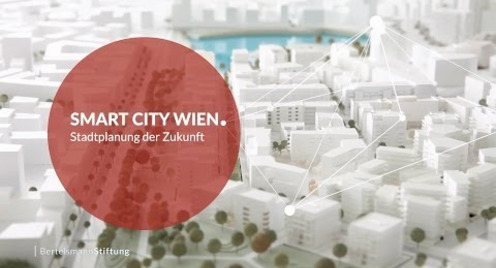Vienna’s Smart City strategy is not driven by a fascination with smart technology. From the very start, one of the goals was to realize social innovations and make the city more citizen-friendly and sustainable. Technology was to serve people – both current and coming generations. Moreover, by getting people involved at an early stage and focusing on their needs, it was possible to create user-friendly applications that reduced resistance to new technologies.
Content
ICT sector as key economic factor
Economic potentials were also recognized and tapped early on. The discussion is not dominated by the fear that digitalization will lead to job losses, but by the opportunities and potentials made possible by new, exciting and future-oriented occupations. As a result, the information and communication technology industry has now become a key economic factor for Vienna, creating four times as much value as tourism does. More than 54,000 people now work in more than 5,800 businesses.
Clear framework created by government
Austria’s first national e-government legislation was passed in 2004, providing a comprehensive public-sector framework. Revised in 2016 for the first time, the law mandates the following:
- Data protection and security for electronic communications and digital applications
- Choice of digital or analog communications when dealing with government agencies
- Barrier-free access to information and services provided by government agencies
Cooperation as success factor
Since 2005 the country’s e-government activities have been coordinated through the Digital Austria platform. This is where federal, state and local governments agree on core guidelines and standards for digitizing administrative procedures, including outside experts as they do so. In 2011, the Federal Chancellery collaborated with the cities of Vienna, Linz, Salzburg and Graz to create Cooperation Open Government Data Austria, which is responsible for managing the shared standards and ensuring effective framework conditions are in place.
Culture change through open data
The city of Vienna has been making non-personal data available on the Internet since 2010. Almost 200 applications have been developed to help users access the approximately 400 datasets that are now online. The result has been a culture change among both public administrators and the public. For administrators, local-level data must no longer be treated as classified information. On the contrary, members of the public and local businesses have the right to make use of this information free of charge. As a result, public administrators must no longer contract or pay for each application to be developed. A creative community takes the initiative, generating new business models and making the data available to the public. Businesses and individuals develop their own applications that enable them to access city services more efficiently and easily. That, in turn, blurs the boundary between public administrators, on the one hand, and businesses and the public, on the other. The private sector and members of the community thus become key players in local-level “self-administration.”
More than a city map
One of the key results of these efforts is the online map of Vienna, which now receives more than 200,000 page views each month. Various types of information can be accessed through the map, from the location of traffic lights with acoustic signals to publically accessible wireless LANs, public restrooms and plastic-bag dispensers for cleaning up after pets. Applications dispatch messages in real time to mobile phones, providing users with personalized information. For example, users can subscribe to a service that sends push messages telling them of disruptions on specific public-transport lines. Similarly, they can sign up to receive news alerts about events they have specified in advance.
So where does it go from here?
The Reinhard Mohn Prize 2017 devotes itself to the idea of “Smart Country - Connected. Intelligent. Digital.” In preparation for the award ceremony, the project team looked into a number of digital projects from around the globe. The focus is placed on economics and work, health and care, politics and administration, mobility and logistics, and learning and information. In addition, the team conducted research in selected countries. The diverse information and experiences gained by the team during its international research is being included in various forms in our ongoing project work. Our reports on Sweden and Estonia are already available. Come back soon to read our last report, which profiles Israel.



